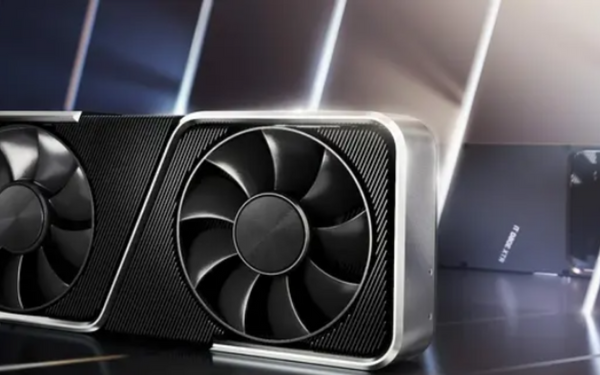The newest rumour is that Nvidia’s RTX 4060 Ti would use less power than the 3060 Ti, but this has just added to the concerns over the graphics card’s possible performance.
Popular Twitter leaker Kopite7kimi claims that the power consumption (TGP) has been reduced from 220W to 160W since the first rumours surfaced in December 2022.
The remainder of the rumour from last month (start seasoning now if you haven’t) suggests that the RTX 4060 Ti will feature 4,352 CUDA Cores and 8GB of GDDR6 VRAM, as shown in the tweet.
The rumoured reduction in power consumption from 250W to 200W for the soon-to-be-released RTX 4070 (a graphics processing unit) supports the move to reduce the TGP. Again, it’s important to stress that these claims are based on nothing more than speculation and hearsay; the RTX 4060 Ti may or may not utilise less power than the 4070.
Is it unrealistic to expect the worst right now?
The projected specifications for the Nvidia RTX 4060 Ti given here have once again sparked online venting of dissatisfaction and even pre-emptive fury, reflecting the prevalent attitude surrounding Nvidia these days.
We already knew the potential CUDA Core count last month, and it was a big deal because it was 512 lower than the 3060 Ti. Of course, the number of cores is not the only determinant of performance.
Concerns about the 4060 Ti’s performance were exacerbated by the fact that it retained a 128-bit memory bus and a VRAM of 8GB (the same as the 3060 Ti, which was previously regarded insufficient for this last-gen GPU). Concerns have been renewed because it was reported that the TGP might be lowered to 160W, raising the possibility that the clock speeds are not being pushed to their limits. Keep in mind, the RTX 2060 Super drew more juice than that even when going back two generations (175W). Put simply, this is another evidence that the next GPU will have subpar performance.
Even yet, it’s too soon to make any definitive statements about future performance. To begin, there is the possibility that this updated TGP estimate is incorrect and will be amended (and the RTX 4070 TGP mentioned via the rumour mill may be errant, too). However, current speculation places the RTX 4060 Ti at around the same level of performance as the RTX 3070 Ti, which is a little disappointing (though to be fair, the 4060 Ti will give extra pep thanks to DLSS 3, for PC games that support the frame rate boosting feature, anyway).
Is it unrealistic to expect the worst right now?
The projected specifications for the Nvidia RTX 4060 Ti given here have once again sparked online venting of dissatisfaction and even pre-emptive fury, reflecting the prevalent attitude surrounding Nvidia these days.
We already knew the potential CUDA Core count last month, and it was a big deal because it was 512 lower than the 3060 Ti. Of course, the number of cores is not the only determinant of performance.
Concerns about the 4060 Ti’s performance were exacerbated by the fact that it retained a 128-bit memory bus and a VRAM of 8GB (the same as the 3060 Ti, which was previously regarded insufficient for this last-gen GPU). Concerns have been renewed because it was reported that the TGP might be lowered to 160W, raising the possibility that the clock speeds are not being pushed to their limits. Keep in mind, the RTX 2060 Super drew more juice than that even when going back two generations (175W). Put simply, this is another evidence that the next GPU will have subpar performance.
Even yet, it’s too soon to make any definitive statements about future performance. To begin, there is the possibility that this updated TGP estimate is incorrect and will be amended (and the RTX 4070 TGP mentioned via the rumour mill may be errant, too). However, current speculation places the RTX 4060 Ti at around the same level of performance as the RTX 3070 Ti, which is a little disappointing (though to be fair, the 4060 Ti will give extra pep thanks to DLSS 3, for PC games that support the frame rate boosting feature, anyway).
Assuming the rumour and performance projection are accurate, the 4060 Ti might still be an attractive graphics card, nevertheless. However, it’s hard to envision Nvidia putting a beautiful inexpensive price tag on this GPU, considering Nvidia’s overall perspective on pricing right now, which is very much related to that present unfavourable public impression of Team Green. The 4060 Ti may sell for as much as $599 in the United States, however rumours put the price at $499.
Is there any upbeat report to report? To be sure, 160W would be fantastic in terms of power efficiency, which is especially important in light of the fact that, in certain countries, electricity prices have recently skyrocketed. But that’s not much of a solace for gamers, most of whom consider the Nvidia xx60 Ti to be the fastest and most cost-effective alternative for their PC.
The RTX 4060 Ti (and the vanilla card) may not be released until the middle of the year, which may be seen as a good (perhaps later, if remaining RTX 3000 stock proves stubborn to shift). It’s possible that when the RTX 4060 Ti is finally released, things will have changed drastically. Nvidia will have had more time to feel the pressure of public opinion, and hopefully AMD will have attacked with appealing RDNA 3 mid-range solutions.

Subtly charming pop culture geek. Amateur analyst. Freelance tv buff. Coffee lover
